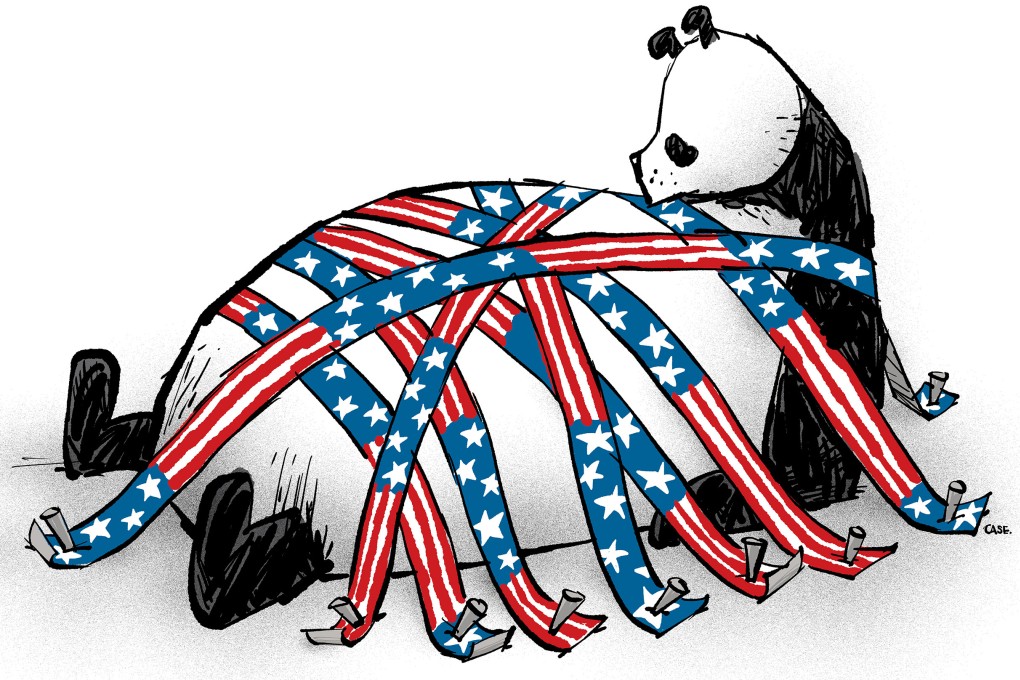Advertisement
Opinion | Power, not ‘national security’, is why the US wants to keep China down
- Washington’s national security seems to largely involve keeping China far behind technologically and economically so as to maintain US hegemony
Reading Time:4 minutes
Why you can trust SCMP
63

Which of the following constitutes a threat to US national security: steel, social media, port cranes or self-driving cars? The answer is: all of them, according to Washington, if they are from China.
Advertisement
Citing national security risks, the Biden administration has retained the punitive Trump-era tariffs imposed on Chinese steel while Congress is threatening to ban TikTok.
A recent bipartisan bill in the House of Representatives seeks to limit the use of foreign cranes, meaning those made in China. Last month, transport secretary Pete Buttigieg said there were national security concerns about China’s self-driving vehicles after members of Congress called for restrictions on the operations of Chinese autonomous vehicle companies in the US.
Nowadays, national security concerns define much of the US government’s economic policy towards China, and are often cited as the reason for Washington’s actions against it – as in strengthening export controls, increasing the scrutiny of Chinese investments in the US, setting up exclusive economic and trade clubs such as the “Chip 4” alliance, ending Hong Kong’s preferential trade treatment, blacklisting Chinese entities and individuals, and planning to restrict US investments in China.
But what exactly does Washington mean by “national security”?
Advertisement
The answer is far from clear. Take 5G, for example. As far back as January 2020, the UK government, after monitoring and testing Huawei Technologies’ 5G equipment, had concluded that deploying it was manageable in terms of risk, and would not negatively affect intelligence-sharing between Britain and the United States.

Advertisement
